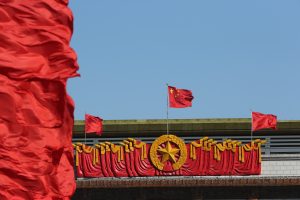On November 12, the “First Forum of Media and Think Tanks of the Global South” took place in São Paulo, hosted by Brazilian President Lula da Silva alongside his Chinese counterpart, Xi Jinping. This event was jointly organized by the State Council Information Office of China, Xinhua News Agency, and the Brazilian Communication Company. According to reports, the forum brought together 350 representatives from 170 media outlets, think tanks, government organizations, and companies from over 70 countries.
The event also preceded the Group of 20 summit to be held in Brazil. While it may seem like an isolated event coinciding with the G-20 meeting, this forum is part of a strategy recently promoted by China and its global partners. For instance, before the BRICS meeting in Kazan, Beijing hosted the Global South Think Tank Forum, organized by the state-owned CGTN. Similarly, Moscow hosted the BRICS Media Summit last September, facilitated by the Roscongress Foundation, an organization linking the state and civil society both within and outside Russia.
In reality, these kinds of engagements with media, think tanks, academia, and the business sector form an essential element of China’s foreign policy. The so-called people-to-people exchanges have been a means, since Mao Zedong’s time, to increase Beijing’s international presence and improve its status in global public opinion. Therefore, labeling the São Paulo event as the first forum of its kind is somewhat misleading.
People-to-People Exchanges?
In Asia and Africa, for example, the People’s Republic of China has held various summits aimed at bringing together key actors from local civil society and aligning them with the Communist Party’s agenda. Similar objectives have been pursued through other events organized in China, where hundreds of foreign journalists are invited by Beijing’s state media. Latin America has also hosted such exchanges, thanks to the China-CELAC Forum and its subforums, including the China-Latin America and Caribbean Think Tank Forum, the Business Summit, and the Civil Society Friendship Forum.
At first glance, it is not problematic for China to establish exchanges with various groups of Latin American civil society and, generally, with the Global South. Even if it were a soft power tool to enhance the image of the Asian giant worldwide, it could be compared to institutions and international bodies that European countries deploy, with state funding, for similar purposes: the Alliance Française or the Goethe-Institut for German culture.
However – unlike China – Western countries also have independent civil society cooperation mechanisms free from government oversight. These entities have succeeded in connecting members of global civil society without imposing state-driven objectives. As former U.S. Secretary of State John Kerry stated, “For the U.S., people-to-people exchange is just that. It is from people to people, not from government to government or with the government in the way.”
Even assuming that China facilitates such exchanges between binational civil society sectors through its summits, party-state control hangs overhead. How could Chinese journalists, constrained by national security laws, engage in critical and pluralistic dialogues with their Latin American counterparts? How could entrepreneurs, restricted by the presence of Communist Party members in their corporations, promote their own interests rather than those of the state?
Instead, China carries out “unidirectional indoctrination,” as Zhuang Liwei aptly described it. The organizers of these summits are none other than the operational arms of the Chinese Communist Party, in collaboration with the propaganda apparatus of Xi Jinping’s government – People’s Daily, CGTN, Xinhua, among others – and their global partners. What is promoted in these forums is not open dialogues or autonomous experiences among varied groups and sectors but an idealized vision of Chinese culture – certainly impressive – and even more so, of the one-party model as a developmental alternative.
For instance, the recently held Think Tank Forum in Beijing was facilitated by the CCP’s International Department, a notable agent of authoritarian influence worldwide, tasked with capturing political parties, officials, and youth from various countries. Meanwhile, the São Paulo event was made possible by the Information Office of China’s State Council, which describes itself as “the highest executive body of state power.”
For the Chinese government, people-to-people exchanges are merely opportunities to integrate new actors into its transnational influence network.
The Role of the Global South
Although not directly addressing China’s interests, the São Paulo Forum of Media and Think Tanks of the Global South was a useful platform for Beijing to promote its narratives. Speakers such as Hu Heping, responsible for the Chinese Communist Party’s communication, advocated for “developing the stability of a multipolar world.” Meanwhile, a report presented by Xinhua highlighted “the experiences of Global South countries under Western colonial exploitation, their struggles for independence, and their current efforts to achieve development.”
Illiberal powers have resorted to concepts such as “Global South” and “multipolar world” not so much to express a geopolitical reality but as an ideology opposing the universality of democracy and human rights. Leaders like Xi and Russia’s Vladimir Putin have found discourses on global multipolarity useful for defending alternative forms of democracy – without the rule of law or checks and balances – and for promoting a global architecture distinct from the rules-based world order. Putin’s speech at the 2007 Munich Security Conference, where he announced the replacement of the West by the rise of the multipolar world, is an early example.
That the forum promoted by China and hosted by Brazil happens here and now makes sense. Undoubtedly, Lula and Xi represent two prominent figures within the BRICS. In the lead-up to a waning G-20, the discourses on the rise of the Global South resonate in countries aspiring to greater international prominence – think of Turkiye or Indonesia, members of the G-20 and also partners of the expanded BRICS. Despite their intragroup differences, Brazil, Russia, India, China, and South Africa agree that multilateral organizations need reform, and they remain the most visible counterweights to the liberal international order so far.

































